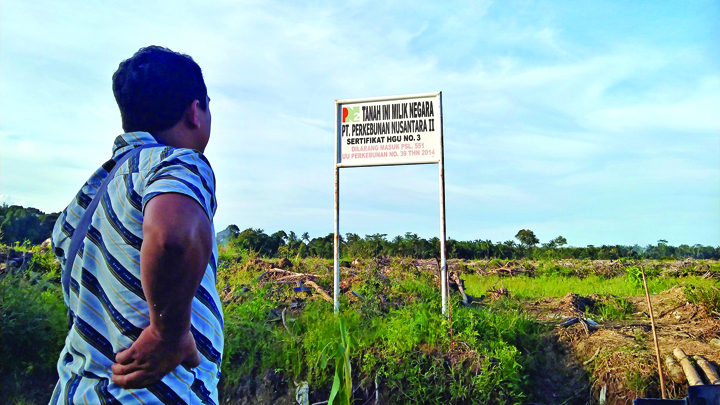Felling Bananas Trees in Pertumbukan
Tuesday, December 22, 2020
arsip tempo : 171398059245.

GUNSHOTS could be heard several times in Durian Selemak hamlet, Wampu subdistrict, Langkat Regency, North Sumatra, on September 28. Shots were fired into the air when officials from Perkebunan Nusantara (PTPN) II used a bulldozer to decimate the planting fields and over a dozen homes of people of the Rakyat Penunggu customary community. Locals who initially obstructed the advance of the heavy machinery scattered once they heard the gunshots.
Mah
...
Subscribe to continue reading.
We craft news with stories.
 For the benefits of subscribing to Digital Tempo, See More
For the benefits of subscribing to Digital Tempo, See More








